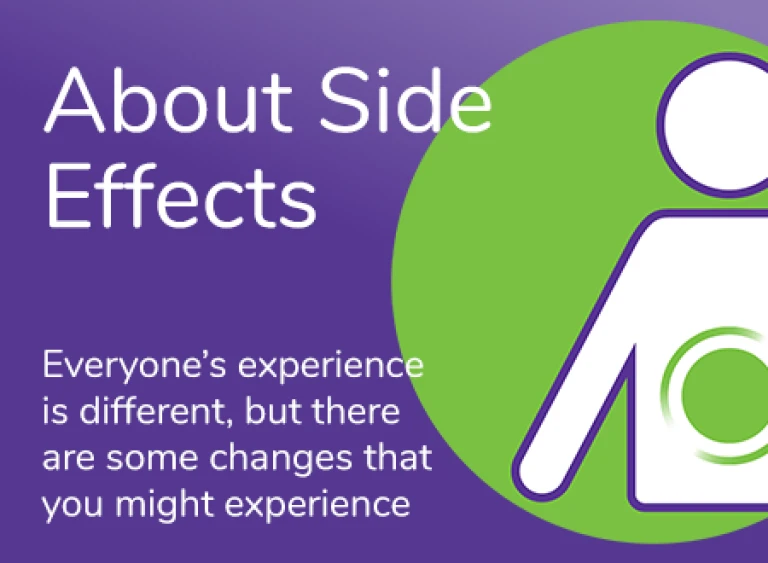
In adult patients with type 2 diabetes
Most common side effects
Nausea
Diarrhea
Vomiting
Abdominal pain
Decreased appetite
Indigestion
Fatigue
Nausea happens most often when first starting Trulicity (dulaglutide)
How many people experienced nausea?
In studies, 8%-29% percent of people using Trulicity experienced nausea.
How long should nausea last?
In a majority of patients who experienced nausea, it typically occurred during the first 2-3 days after they took their first dose. Nausea generally subsided after the first 2 weeks, but some experienced it beyond their second week of treatment. Less than 2% needed to stop taking Trulicity because of nausea.*
*The most common gastrointestinal side effects with Trulicity may include nausea, diarrhea, vomiting, abdominal pain, and decreased appetite. In studies, GI side effects were more common in people taking Trulicity than people taking placebo, and people taking Trulicity were more likely to stop treatment because of these side effects. Nausea, vomiting, and diarrhea may cause a loss of fluids (dehydration), which could cause existing kidney problems to get worse (including kidney failure). Trulicity may cause severe stomach problems.
When you increase your dose of Trulicity, you might experience nausea. With the higher dose options, about 16% of adults experienced nausea and about 1% of adults needed to stop taking Trulicity because of it.*
*The most common adverse reactions experienced with Trulicity are nausea, diarrhea, vomiting, abdominal pain, decreased appetite, indigestion and fatigue. The rates of nausea, vomiting and diarrhea, while numerically higher in each of the higher dulaglutide groups compared with the 1.5 mg group were similar between the dulaglutide 3.0 mg and 4.5 mg groups in a clinical trial. Nausea, vomiting, and diarrhea may cause a loss of fluids (dehydration), which could cause existing kidney problems to get worse (including kidney failure). Trulicity may cause severe stomach problems.
Select Important Safety Information
Ask your healthcare provider how to recognize possible serious side effects and what to do:
Acute kidney injury. In people who have kidney problems, diarrhea, nausea, and vomiting may cause a loss of fluids (dehydration). This may cause kidney problems to get worse.
A few tips for managing nausea
If you experience nausea, talk to your doctor. In the meantime, some people find the following tips may help:

Avoid fried or other fatty foods

Try eating bland foods like toast, crackers, or rice

Try splitting your 3 daily meals into 4 or more smaller ones